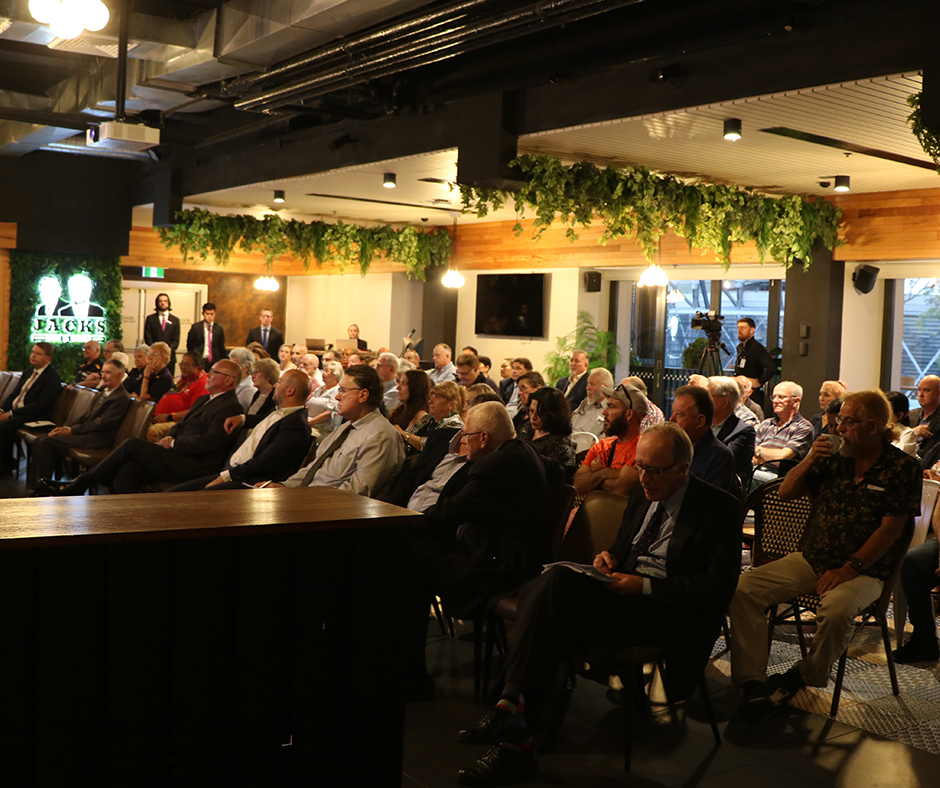When 65,000 members of Parramatta Leagues Club were informed by email in late January that an undisclosed candidate in the upcoming board elections had been provided with each of their names, addresses and contact details, there was a question on everyone’s lips: who?
They had every reason to be wary.
The club has recently reformed its constitution and modernised its board, but it has not shaken its reputation for controversial candidates and vicious elections.
Past polls have featured allegations of membership tampering, vote rigging and intimidation, as members vie to control the social headquarters of the Parramatta Eels NRL team.
But the club hedged.
It was legally obliged to provide members’ details to any board candidate who asked for them, but its obligation to protect the privacy of the person requesting the membership database was less clear.
This candidate had a history of litigation – the club had spent a small fortune defending itself against a claim by him the previous year – and he did not want his identity disclosed.
As anger within the membership grew, chief executive Chris Dimou sought urgent advice from the Privacy Commissioner, Liquor and Gaming NSW and the peak industry bodies.
However, eight days after the original email arrived, members received a second email that answered their question.
The subject line was “Parra Leagues Voting Starts Now” and the smiling image of the candidate was none other than
controversial former chairman and property developer Roy Spagnolo.
“As a lifelong Parramatta Eels fan, I am pleased to have been nominated for the Club’s Board Elections 2024,” it began.
“I was privileged to serve on the Board between 2009 and 2013, during which time I helped rebuild the Club’s finances.”
Spagnolo’s email did not mention that two years after he was voted off the board, the Independent Liquor and Gaming Authority (ILGA) determined that he was unfit to govern a registered club, upholding a complaint that he had not followed correct expense approval processes and authorised an illegal bonus to the chief executive that was calculated on poker machine takings.
The authority was unable to substantiate a more serious complaint that he had tampered with an election by backdating the membership records of his friends and associates to enable them to vote for him at the 2013 ballot, though it opined that this allegation had warranted a more thorough investigation than the one afforded to it.
Incumbent chairman Greg Monaghan – who prevailed over Spagnolo by nearly 600 votes when the voting closed on February 23 – is now asking the government to re-examine the Corporations Act so clubs are not required to pass over their members’ details on request.
“For organisations like ours to be investing substantial sums to minimise hacking and systems intrusion, and then to be actually required by law to provide such personal information by virtue of a simple request by a member, is completely out of touch with the modern world,” Monaghan said.
“For members’ details to be provided without their consent, and the name of the requesting party to be withheld so members do not even know who has their personal information, is incomprehensible.”
Loading
Registered clubs are also required to provide their membership databases to any members who call an extraordinary general meeting. Strictly, the material can only be used for the purpose for which it was provided and must be destroyed after the ballot.
Monaghan is also calling for stricter controls on who can sit on the governing boards of registered clubs, and for people who have previously been found not fit and proper to run a club to prove they have been rehabilitated before they are allowed to run again.
When ILGA determined in 2015 that Spagnolo and four other former directors were not fit to govern a registered club, it stopped short of issuing a declaration that they should not be allowed to hold a director’s position, and club has been
trying to tighten its constitution to prevent the return of such individuals ever since.
It tried last year to introduce a clause to disqualify board candidates who had been found not fit and proper to govern a registered club, but called off the ballot due to staunch legal costs after Spagnolo brought an injunction to stop it going ahead. The club’s 2022-23 annual report recorded legal expenses of $738,318 – an increase of more than $500,000 on the previous year.
Loading
Spagnolo declined to comment.
ClubsNSW said its parent organisation, Clubs Australia, had engaged with the Commonwealth authorities to seek stronger privacy protections for club members. Ideally, a mechanism could be found for members to communicate with the broader membership in a way that did not involve handing over anyone’s personal information.
“ClubsNSW has long been concerned about the wide-ranging power of club members to access the personal information listed on a club’s register of members,” ClubsNSW said in a statement.
The matter has been closely watched by other clubs.
Club Blacktown chief executive Robert Heinrich said it was a perennial challenge for clubs to make sure they were not taken over by sub-clubs or individuals with their own agendas.
“That individual now has the personal details of the [Parramatta Leagues Club] members,” Heinrich said.
“What security is in place to protect those? If it was me, I would be digging my heels in.”
An undisclosed board candidate was given members’ names, addresses and contact details. One question was on everyone’s lips: Who?

www.smh.com.au

 www.parraleagues.com.au
www.parraleagues.com.au



www.parraeels.com.au


 .
.